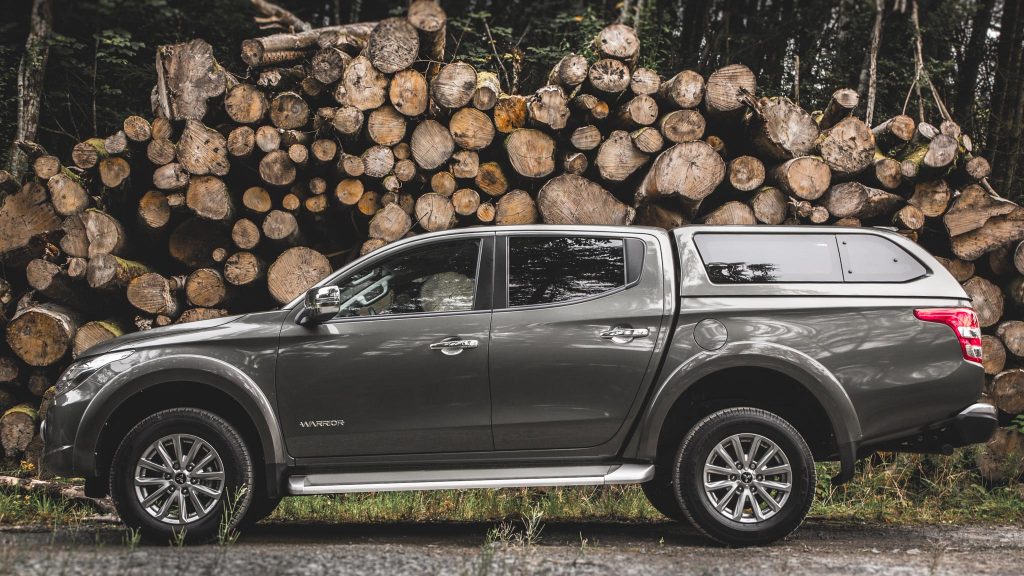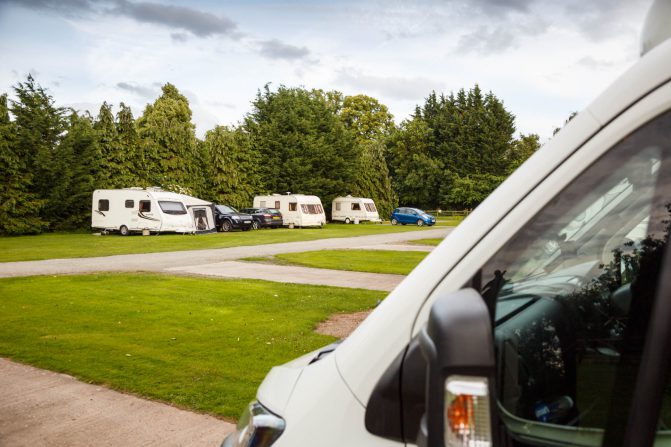Slide-in truck campers are some of the least appreciated campers in the RV world. With so much attention placed on motorhomes and travel trailers, these nifty RVs are often overlooked by folks in the market for a new camper.
One simple reason for this phenomenon is that many people do not have the prerequisite truck needed to transport a truck camper. Aside from that, truck campers are expensive and many RVers do not think it is worth paying such a high price for a relatively small rig.
Today I am going to dive into the world of slide-in truck campers; what they are, what types are available on the market, and most importantly, why they are so expensive.
What Is A Truck Camper?
Simply put, a truck camper is any recreational vehicle that can be carried in the bed of a pickup truck. Across the world, these campers have many different names. Australians primarily refer to them as “slide-ins” due to the action of sliding them in and out of a pickup’s truck-bed.
In parts of Europe that speak English, truck campers are sometimes known as “dismountables” – a term that you will likely never hear in North America. People living in the United States and Canada mostly refer to them as “truck campers” or “truck bed campers”.
Types Of Truck Campers
Truck campers come in a wide variety of shapes and sizes. Each type has a unique set of perks and drawbacks that either attract or deter a potential owner. With so many varieties of this RV on the market, there exists a perfect truck camper for every lifestyle.
Pop-Up
Sleek, low-profile, and relatively lightweight, pop-up truck campers slide into the bed of a truck in a compact, collapsed state. Once parked at a campsite, the roof raises, or “pops up”, into what is called the camping position. In this position, the elevated roof provides enough clearance for most people to comfortably stand upright in the camper.
While raised, durable canvas walls protect the interior of the rig. This canvas offers a fair degree of protection against rain and snow, but is susceptible to cold weather and heavy, penetrating wind.
Pop-up camper perks:
- Aerodynamic and lightweight design for maximized fuel efficiency
- Superb performance in off-road travel due to compact profile and low center of gravity
- Low cost relative to other truck campers
Pop-up camper drawbacks:
- Poor insulation results in low protection against hot and cold weather
- Potential security risks from canvas walls
Hardside
If you have any experience in the RV world and can picture a truck camper in your minds-eye, you are probably picturing a hardside truck camper. Hardside truck campers are the largest and most popular type of truck camper on the market. They are referred to as “hardsides” because they feature a hard roof and solid sidewalls.
Hardside truck campers are well insulated, and offer fantastic protection against severe weather such as snow, rain, and heavy wind. They also offer peace of mind in knowing that you have four solid walls protecting you against wild animals like bears, cougars, and humans.
Hardside camper perks:
- Ample storage space and comfortable living area
- Tight security from the elements and wildlife
- Numerous amenities not found in smaller truck campers
Hardside camper drawbacks
- Poor fuel efficiency due to high center of gravity, large profile, and weight
- Most expensive of all truck campers
Fiberglass Shell
Some RVers might argue that hardside and pop-up truck campers are the only two varieties of truck camper out there. But I belong to the new, young generation of RVers and I fight that idea.
Born from the trend of outdoor athletes and enthusiasts converting truck canopies into cheap, DIY campers, a new hybrid model of slide-in truck camper is rapidly gaining popularity. These campers are low-profile, lightweight, and very spartan in the amenities they offer. Imagine a traditional fiberglass truck canopy with an extended berth over the truck cab.
Some are hardside, some are pop-up, but all feature fiberglass construction, uber-sleek aerodynamic design, and relatively small living quarters. In my humble opinion, this is the future of truck camper boondocking.
Fiberglass shell perks:
- Aerodynamic and super lightweight design for maximized fuel efficiency
- Superb performance in off-road travel due to compact profile and low center of gravity
Fiberglass shell drawbacks:
- Small living quarters unsuitable for large parties or families
- High cost due to low customer demand and expensive production process

Who Uses Truck Campers?
In my experiences as a ski bum, outdoors enthusiast, and RVer, I’ve primarily seen truck campers used by solo travelers and couples without kids.
To put it simply, truck campers are not made for big families.
This mainly due to their size. Similar to camper vans, truck campers do not offer large enough living and sleeping quarters to accommodate more than two adults and a dog or cat for an extended period of time. Large truck campers might be a feasible option for families with small children, but those families will quickly outgrow a truck camper and need to upgrade.
With that said, truck campers are the ideal rig for some people. Here are some of the scenarios in which truck campers are best utilized:
- Couples or solo travelers using a truck camper as a weekend getaway rig. Oftentimes these folks have an adventurer truck camper for ease of backcountry access and fuel efficient highway travel. Additionally, young professionals benefit from being able to unload the rig and use their truck as a commuter during the work week.
- Journeymen who travel the country for work. These workers frequently use truck campers as a home on wheels. They drive their rig to the job and live on site for the duration of the contract. This allows them to pocket their living stipend and save money living on the cheap.
- Seasonal workers – ski resort workers and river guides in particular – camping on the job for the season. A truck camper is the perfect amount of camper for one person to live in for an exciting season of outdoor work.
Who Uses Truck Campers?
A new truck camper costs between $10,000 and $65,000. While this is less expensive than new travel trailers and motorhomes, it’s still a pretty penny to dish out for a camper.
Many people are surprised at that price tag. They assume that with no moving parts or engine, a truck camper wouldn’t have such a steep price tag. But alas, truck campers are expensive, and for good reason.
Production Capacity
Truck campers are so expensive mainly due to production capacity and market demand. Simply put, truck campers are not as popular as other types of RVs. This lack of popularity leads manufacturers to have less refined systems of manufacturing and to produce less of these campers every year.
Both of these variables result in high production costs, and in turn, high retail costs.
Engineering
Similar to truck canopies, a truck camper must be engineered to fit within the preexisting dimensions of a specific truck. In most cases, every model is designed to only fit on one model of truck. This presents an engineering and manufacturing hurdle.
As new trucks are released with new bed lengths, bed widths, and wheel well dimensions, camper manufacturers must adjust the dimensions and manufacturing processes of their campers. There is no “one-size-fits-all” tow hitch as you find on travel trailers.
These engineering and design changes cost time and money, and unfortunately those expenses get passed on to the consumer.
Material Cost
All RVs are constructed with expensive materials, and slide-in truck campers are no different. These materials include aluminum, fiberglass, stainless steel, and high-grade insulation. As an ex-RV technician and van conversion specialist, I can attest that these materials do not come cheap, especially aluminum and stainless steel.
Not only are the materials themselves expensive, but the fabrication processes are tedious and time-consuming. Welding aluminum is a tricky business and requires welding specialists. Machining stainless steel is exceptionally difficult and often results in extreme wear and tear on tools.
In order to make manufacturing these rigs profitable, manufacturers must once again pass these expenses onto the consumer.
Conclusion
Personally, I think truck campers are great. My opinions on these campers may go against mainstream views, but I think they are totally worth the expense, especially if you are a solo traveler or a small family that doesn’t plan on getting any bigger.
Sure you might be paying more per square foot of living space, but it comes with the convenience of versatility, fuel efficiency, and rugged off-road capabilities. Totally worth it!
If you think a truck camper is right for you and your adventure dreams, try not to balk at the prices. Just save your pennies for a while and be ready to pull the trigger when the right rig at the right price comes your way. You won’t regret it.
Happy camping!

